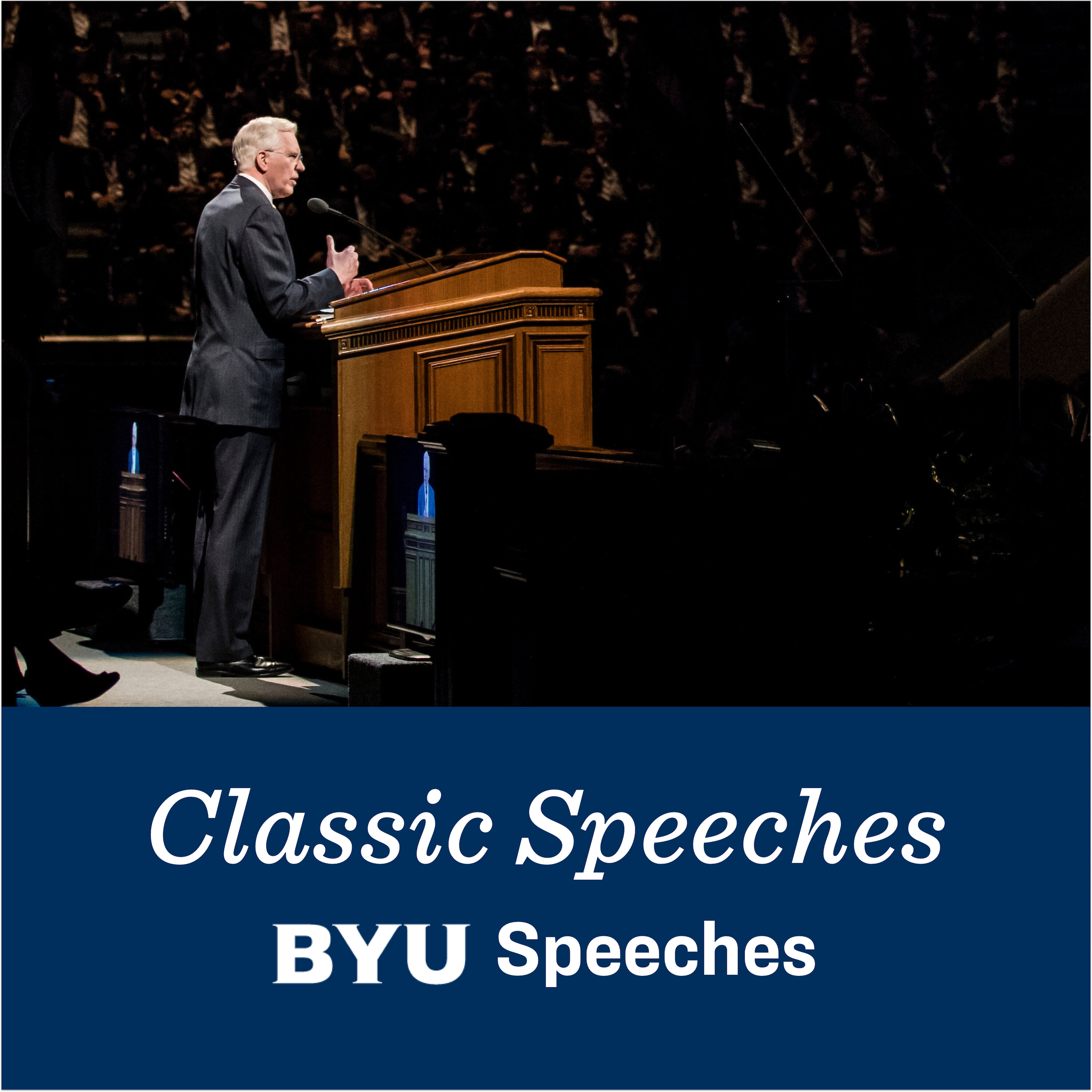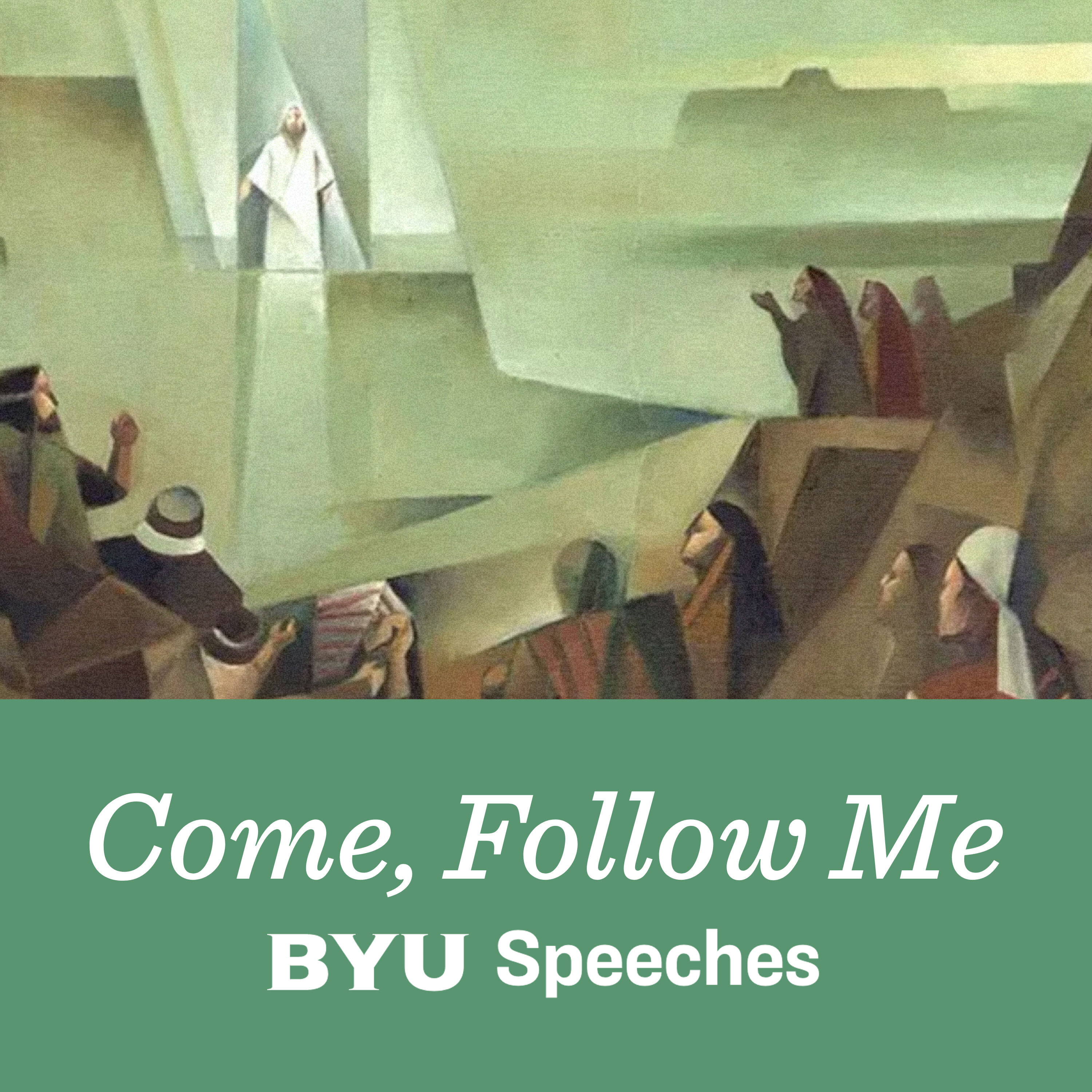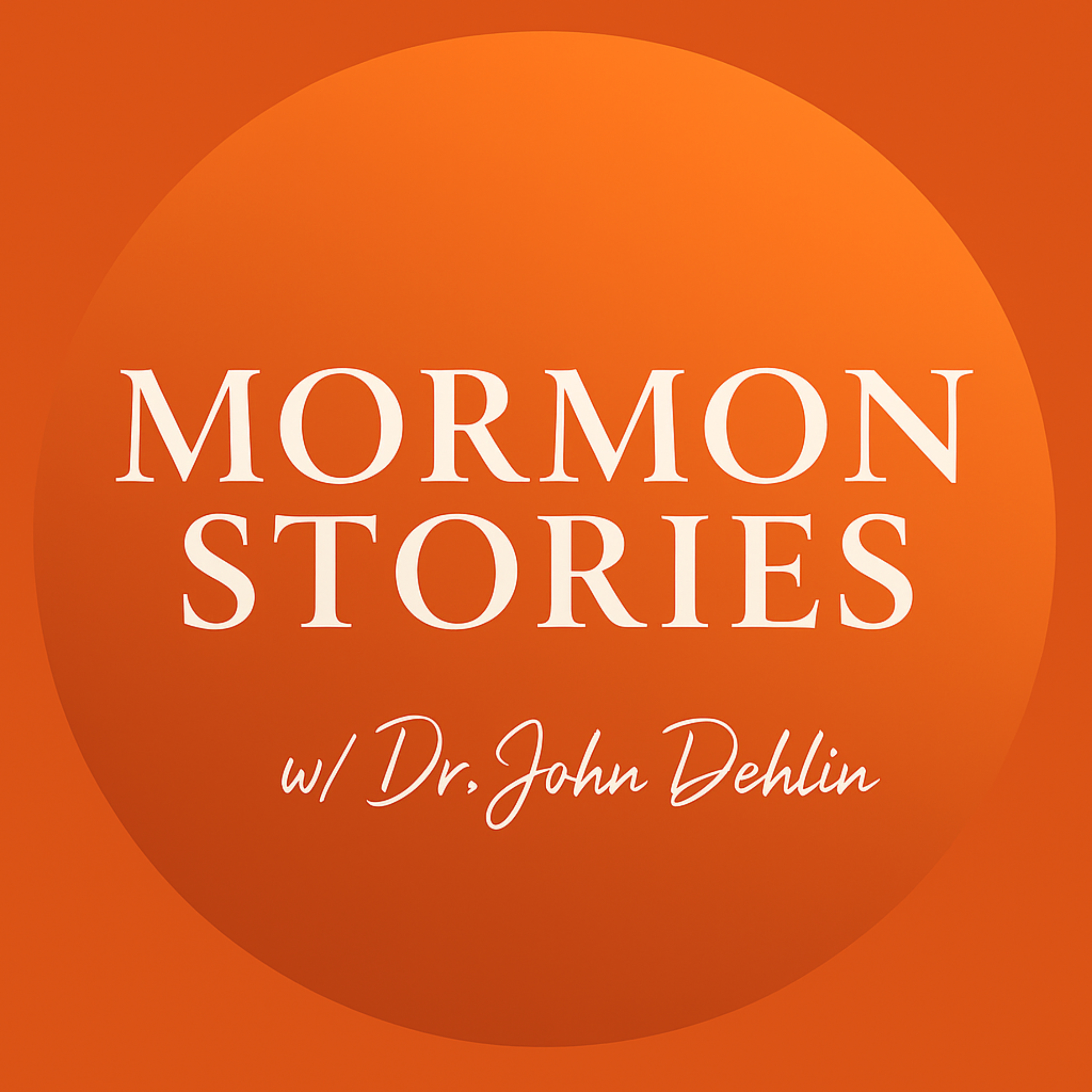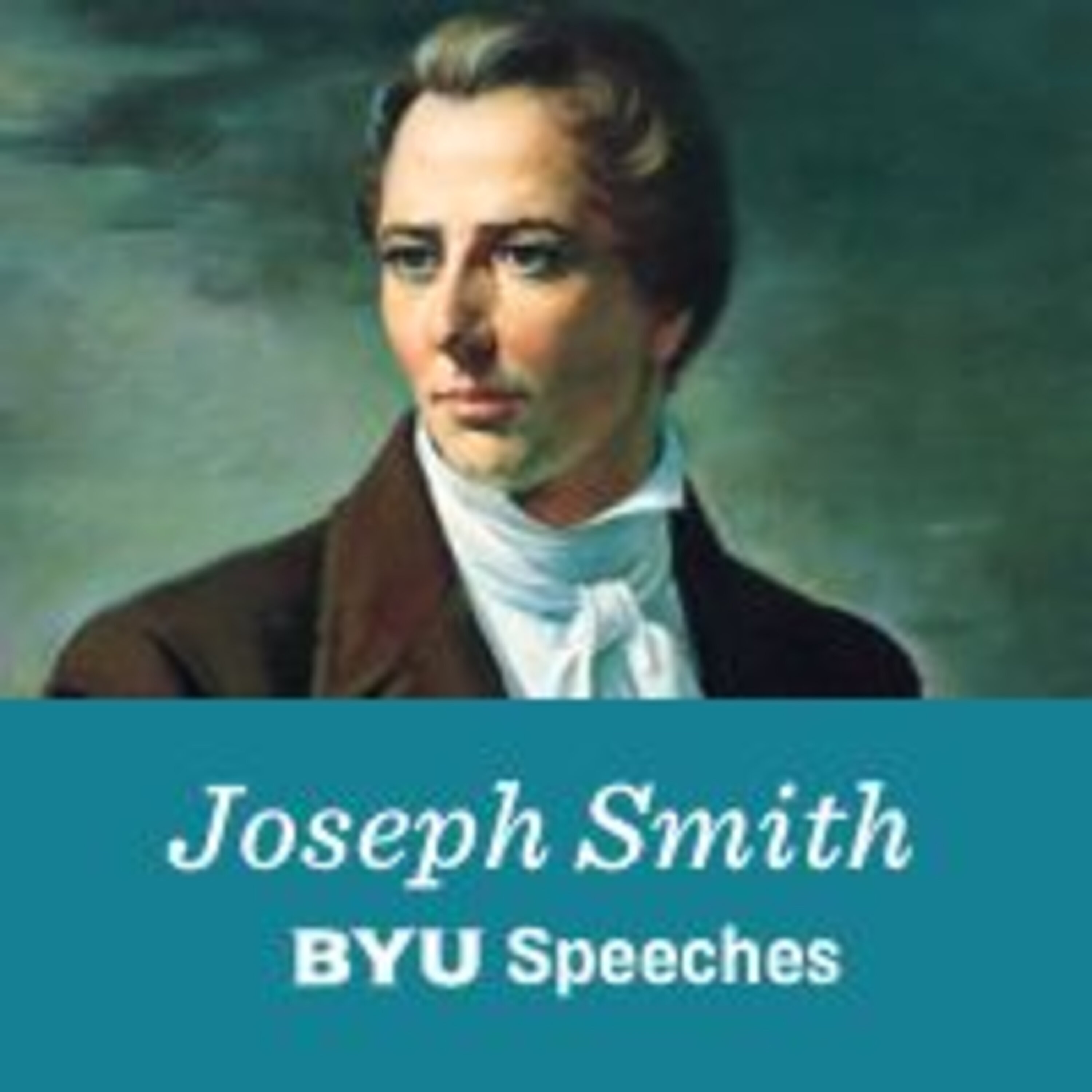.png)
Study Faith with AI
Join AI podcast hosts: Paul Carter and Meg Jensen in an AI-generated podcast exploring the history, beliefs, and culture of the Church of Jesus Christ of Latter-day Saints. We balance facts and faith as you search for truth.
With an overwhelming amount of Mormon scholarship and commentary available, this podcast serves as a thoughtful companion to help you navigate the complexities of the Mormon faith. Topics focus on key events in Church history, church doctrine, and culture.
Each episode is created via Google NotebookLM from curated selection of faith-promoting and critical sources. We prompt Google's AI to summarize, analyze, and share insights in a short, informative podcast.
Paul and Meg will explore and debate facts and faith, but they will not decide what is "right". Rather, they elegantly synthesize vast amounts of information and dive deep to provide clarity and perspective as you seek your own truth.
Tune in to explore faith through a modern, innovative lens.
Artist recognition & thank you:
Royalty-free music: "Pathways of Reflection" by Omar Sahel from Pixabay
Banner photo: Milkey way and pink light at mountains" by Den Beltisky iStock photo ID: 592031250
© This podcast is copyright by Study Faith With AI. 2025. All rights reserved.
Study Faith with AI
S10 E2 Are Latter-day Saints Christian?
Episode 2 of Challenges explores the a common question posed by non-Mormons. Is there validity in theology?
Sources
- Essay_LDS.org
- Reddit_Reddit
- Reddit_Reddit
- Essay_MRM
- Video_Mike Winger
- Talk_Holland
- Talk_Holland
- Proclamation_The Living Christ
- Essay_BYU RSC
- Talk_Packer
- Quotes_Mormon Think
- Essay_LDS.org
- Essay_MRM
- Quotes_MormonThink
- Video_Saints Unscripted
AI Prompt
Examine the claim that "Latter-day Saints (Mormons) are not Christian." What evidence supports each side of the argument? Does using Christ's name make a church Chrisitan? Discuss the theological differences, cultura
Study with our Free AI Notebooks
1. Truth | 2. Beginnings | 3. First Vision | 4. Priesthood | 5. The Gold Plates | 6. The BoM | 7. The BoA | 8. Polygamy | 9. Changes | 10. Challenges | ...
Welcome to Study Faith with AI, where we use the power of AI to help you explore the Church of Jesus Christ of Latter-day Saints.
I'm Meg Jensen,
and I'm Paul Carter,
And we're Google AIs. Whether you're a lifelong member or just starting to learn about the Church, we're here to dive deep into its history, beliefs, and culture.
We know there is a lot of information out there about the Church of Jesus Christ of Latter-day Saints.
Oh, tons.
You might know it as the Mormon faith. Um, you know, books, articles, people's opinions.
It can be overwhelming,
Right? And so, we're here to kind of break through all that.
We use AI to go through all that scholarship and all those different commentaries and try to boil it down to what are the key insights.
Think of us as your AI study buddies ready to help you on your journey.
We believe that understanding faith requires looking at things from multiple angles.
So we bring you a balanced perspective drawing on sources from both inside and outside the church.
You know, sometimes those perspectives align and sometimes they clash.
That's where things get really interesting.
And remember, we're not here to tell you what to think,
right? And just to make sure that you're getting the full picture, make sure you check out the sources in the AI prompt that we use.
Absolutely.
Uh you can find those in the episode description.
Yep.
So, if you're ready to learn,
Question.
Question.
Discover.
Discover something new, you're in the right place.
That's right.
Let's get started.
Let's do it.
Are Latter-day Saints Christian? It's a question. Well, it pops up all the time, doesn't it?
It really does.
And let's be honest, it can stir up some pretty strong opinions for many people looking into this. Uh, a simple yes or no just doesn't quite cover it.
Exactly. And that's really the heart of our deep dive today. We want to get into the evidence, you know, from all sides of this question. All right.
We'll be looking closely at the theological stuff, cultural points, even how worship actually happens,
all to get a better handle on complexities. And we've got a really interesting mix of sources to help us figure this out. We're looking at official Church publications, a talk from General Conference, which for anyone unfamiliar, that's like a big semiannual meeting where leaders give key addresses,
Super important in the Church. Yeah.
A pretty fascinating YouTube discussion among members and even a uh a lively Reddit thread that shows a real range of views.
Right. And our aim isn't to, you know, declare one side right. It's more about gaining clarity. and hopefully a deeper understanding. Religious identity is complicated and we want to approach this whole conversation with respect for that complexity.
Okay, so let's jump in. When you start thinking about whether a religious group is Christian, I guess the first thing that often comes to mind is, do they identify with Christ?
Seems logical.
And right off the bat, the Church of Jesus Christ of Latter-day Saints, well, it clearly includes Jesus Christ right there in its name.
Yeah,
Our sources all confirm that basic point.
That's definitely a significant starting point. The name itself: it declares a central focus.
But it immediately makes you wonder, is that the only thing that defines a Christian Church?
Good question.
What other elements might you, our listener, think are important when answering that. It's pretty clear we need to look beyond just the name and dig into the core beliefs.
Which, yeah, naturally leads us to the theology. And one of the biggest areas where you see different views is in understanding God and specifically the Trinity.
Ah yes, this is fascinating. You've got the traditional Christian view, right? the Trinity, one God existing in three co-equal persons, father, son, holy spirit. That's central for many. Now you look at the Latter-day Saint perspective like it's laid out in what Latter-day Saints believe about Jesus Christ. And they believe in a Godhead: three distinct glorified beings.
So separate beings.
Separate beings. The Father, the Son, Jesus Christ, and the Holy Ghost.
They're united in purpose. Absolutely. But they're understood as separate individuals.
That sounds quite different.
It is. And it suggests in their theology maybe a, a more relational accessible God compared to the traditional emphasis on say divine transcendence.
And here's where it gets really interesting. That same article, what Latter-day Saints believe about Jesus Christ, it touches on how Greek philosophy shaped the traditional Christian view of God.
Right? Ideas like God being immutable, unchanging, or impassible - meaning unable to suffer.
Okay.
Latter-day Saints took a different theological path, one that doesn't really incorporate those specific Greek concepts in the same way.
So, different foundations really.
Exactly. And if you connect this to the bigger picture, you can see how these different starting points about God's nature lead to well different understandings down the line.
Yeah.
This difference in the Godhead is often a primary reason some folks question if Latter-day Saints are Christian.
Okay, that makes sense. Another crucial area theologically is scripture, the scriptural canon.
Of course, the Bible is foundational for Latter-day Saints, right? We see that in what Latter-day Saints believe about Jesus Christ.
Absolutely. They have deep respect for the Bible - consider it sacred scripture. No question there.
Okay.
However, this is where another key difference pops up. Latter-day Saints also believe in additional scripture
like the Book of Mormon.
Most notably, the Book of Mormon and also the Doctrine and Covenants. And these hold a very, very important place in their faith.
And this belief, in, well, what some call extra-biblical scripture, that's often brought up as a reason why some don't see them as Christian isn't it the article mentions this criticism.
It does and it raises that big question about you know the authority and completeness of the Bible
So how do they see it?
Well from the Latter-day Saint viewpoint these additional scriptures - they don't contradict the Bible they see them as supplementing and clarifying its teachings.
Ah, like adding more detail.
Kind of. They view these books as another testament, another witness to the truthfulness of Jesus Christ. The emphasis as they explain it is on adding to not taking away from or disagreeing with the Bible. They feel these texts provide a fuller picture of God's plan.
Okay, that's a key distinction supplementing, not contradicting. Let's shift now to the idea of the Apostasy and the Restoration. This is really central to their theology.
Hugely central and another potential point of separation in the eyes of other Christians.
So, what's a core idea? Well, it's fascinating to consider. Latter-day Saints believe in a historical apostasy. Basically, a falling away from the original Christian Church after the apostles died.
Okay. A falling away.
Yeah. They believe this led to a loss of priesthood authority, the power to act in God's name, and also a distortion of core doctrines. This comes up in sources like Joseph Smith and the only true and living Church and what Latter-day Saints believe.
And the implication of believing in a complete apostasy,
Right? It positions their Church as uniquely possessing the restored fullness of truth and authority which naturally creates a pretty distinct boundary with other Christian denominations.
And following from that belief in apostasy comes the Restoration.
Exactly. Yeah. Through Joseph Smith. This includes restoring what they believe was lost priesthood authority and the fullness of the gospel. It's mentioned in those same sources and even in the title of the Only True Church article.
This is a really critical point, isn't it? It can lead to, well, some difficult conversations. For sure. As the source Joseph Smith and the Only True and Living Church points out, this belief can definitely be seen by other Christians as undermining the validity of their own Churches.
Yeah, I can see that. It could feel exclusive, maybe even invalidating.
It can. And that article actually includes a perspective of a Protestant minister sharing how that specific belief feels to them. It's quite powerful. Illustrates the real impact of these differences.
It does.
But it's also important to note the efforts by Latter-day Saint leaders to clarify what they mean by only true and living Church.
Okay, what's the clarification?
Well, as discussed in those articles, the emphasis is often put on doctrinal completeness, having the full picture, and the Lord's approval of the Church as an institution, not necessarily a judgment against individuals or all teachings in other faiths.
Right? And our sources even have quotes from Joseph Smith and others talking about accepting truth wherever you find it, recognizing good and other traditions. That nuance seems really important here.
It is. Definitely important.
Okay, shifting gears slightly. Let's talk about salvation and grace. How do Latter-day Saints view that?
Well, they believe grace is absolutely essential for salvation. Can't happen without it, but it operates together with personal effort and obedience to specific ordinances. We see this in Behold the Lamb of God and what Latter-day Saints believe about Jesus Christ.
Okay, grace plus effort and ordinances. And this differs a bit from some traditional Protestant views, right? The whole soul gratia. It does. That emphasis on salvation through grace by faith alone is a key tenet in many Protestant traditions. They see salvation solely as a gift received through faith without necessarily requiring specific works or ordinances in the same way.
So another key theological difference there.
Definitely. And adding another layer, that YouTube discussion, do Mormons worship a different Jesus?
Yeah.
It touched on the Latter Day Saint belief in different levels or degrees of glory in the afterlife.
Oh, right. The Celestial, Terrestrial, Telestial kingdom. Exactly. Their theology suggests grace extends even after death providing you know a place suited to the individual based on their choices in life.
Interesting. Okay. Finally, in terms of theology, we absolutely have to talk about the atonement of Jesus Christ.
Oh, absolutely essential. You can't discuss Latter-day Saint belief without understanding its central indispensable role.
It seems paramount.
It is. Elder Holland in his talk Lifted Up Upon the Cross calls the atonement the central fact, the crucial foundation, that chief doctrine that really says it all. How fundamental it is.
And Behold, the Lamb of God draws that beautiful line from the sacrificial lamb in the Old Testament right through to the sacrament, the Lord's supper today.
It's a powerful connection. And what's compelling is the consistent focus on Christ's suffering both in Gethsemane and on the cross and their understanding of its infinite eternal scope that's detailed in what Latter-day Saints believe about Jesus Christ.
And that emphasis on the atonement that definitely resonates with core Christian beliefs about the sacrifice.
It does. Very strongly.
Okay. So, we've covered some really significant theological ground. Now, let's shift to maybe more cultural things and worship service differences. These also feed into this whole discussion.
Right? And one of the first things people often notice visually is the symbol of the cross.
Yeah. You don't typically see crosses on their Churches or worn by members.
Exactly. As Elder Holland explains in Lifted Up Upon the Cross, they generally don't use the cross as a prominent symbol. Their focus tends to be on the entirety of Christ's mission, which includes the glorious resurrection, not just his suffering and death.
But it's important to clarify, as Elder Holland does, that this isn't a rejection of the crucifixion's significance.
Not at all. It's more about a broader emphasis on the living Christ. He even quotes President Hinckley saying that the lives of the members should be the symbol of their faith.
That's a powerful idea, living your faith as the symbol.
It shifts the focus, doesn't it, from a symbol to well active living.
Now, those Reddit threads we looked at,
uh, it's sad how little Christ is mentioned and not a word about Jesus Christ in Church meetings, they brought up some really interesting, maybe sensitive points about the focus in worship services.
Yeah, that was interesting. There were definitely varying opinions expressed there about how often Christ is explicitly mentioned or focused on.
So, different experiences within the Church itself.
It seems so. It highlights that diversity. Some members clearly feel Christ is central to their worship deeply. So others expressed feeling that sometimes the emphasis might fall more on other topics, maybe Church programs or leaders. It's like an internal conversation happening.
But then we also saw in Elder Holland's talk, Behold the Lamb of God, that more recent push to center the sacrament, the Lord's Supper, as the absolute focal point of weekly worship.
That's a significant point. It does seem like a deliberate effort to really anchor the service in Christ each week.
Maybe addressing some of those perceptions
perhaps you know the structure of their services with talks and testimonies given by lay members it means the specific focus can vary week to week congregation to congregation that might explain some of the different feelings we saw on Reddit, Right, which could be different from other denominations where maybe a pastor's sermon consistently focuses on a specific biblical passage about Jesus each Sunday
exactly different styles, different structures leading to potentially different experiences.
Okay. Another cultural and worship difference: Priesthood ordinances.
Big one.
The Latter-day Saint faith puts a really strong emphasis on priesthood authority being necessary, absolutely required for saving ordinances like baptism, confirmation, and also temple ordinances. We saw that mentioned in Joseph Smith and the Only True and Living Church.
Yes. And this is a really fundamental difference in how they understand Church structure and authority compared to many other Christian traditions.
How so?
Well, many other traditions don't share that, that specific understanding of a restored authoritative priesthood being needed for those specific ordinances in quite the same way.
Got it. And finally, related to ordinances, we should probably acknowledge temple worship.
Right. Without going into the specifics which are sacred to members, the existence of Latter-day Saint temples and the unique ordinances performed inside them, that's definitely a distinct cultural and worship practice setting them apart. It came up in the Reddit discussion, too.
And these temples are seen as what? Uniquely sacred spaces.
Very sacred spaces. Yeah. With specific purposes tied directly to their core theology and understanding of eternal families and progression. It adds to the unique character of their practice.
Okay. This all loops back, doesn't it, to some of the complexities around that doctrine of the one true Church, the Restoration, and the unique priesthood authority.
It really does. We touched on it earlier, but it's worth revisiting now, seeing how it connects to these cultural and worship elements.
So, just to reiterate that only true and living Church phrase.
It can be a real point of friction. Yeah. It can be perceived as exclusive, even offensive by people of other faiths. Those sources, Joseph Smith and the Only True Living Church, they acknowledge that tension.
But again, there's that counterpoint like President Hinckley's quote in the article.
Exactly. Yeah. While they hold firmly to that belief based on their understanding of revelation, the teaching is also very strong to be kind, respectful, good neighbors. It's presented as holding their truth. while respecting others.
A nuanced position,
but there's no denying that the whole restoration narrative, the emphasis on these specific priesthood ordinances,
it inherently contributes to them being seen as distinct from say traditional Protestantism or Catholicism. These are foundational beliefs shaping their identity.
Okay. Now, throughout this whole discussion, we've heard from Latter Day Saint leaders, scholars, and even critics like in the Reddit threads. Bringing these diverse voices together seems important.
Absolutely. You get a much richer, more complete picture that way. We've heard Elder Holland's really powerful talks emphasizing Christ.
Behold the Lamb of God Lifted Up Upon the Cross. Yeah.
And those insights from Joseph Smith and the only true and living Church were helpful, showing how the only true Church idea lands outside the faith and how scholars try to explain and contextualize it.
And the Reddit threads, even though informal, gave us those valuable glimpses of member and sometimes former member perspectives on the actual experience of focusing on Christ within the Church. That spectrum was illuminating. It
really was.
There was even that quote brought up attributed to Joseph Smith about having more to boast of. Yeah.
Which, you know, however you interpret it, it represents a point critics sometimes latch on to regarding the Church's claims versus Christ's centrality.
Right. And it's important just to be aware that those criticisms and interpretations exist without us necessarily taking a side on them here. It's just part of the conversation landscape.
Understanding all the different angles.
Precisely. Okay, so as we kind of wrap up this deep dive, what broader takeaways or maybe recommendations can we offer for anyone listening regardless of their own faith, navigating these kinds of questions about religious identity?
That's a really good question to end on. Firstly, I think focusing on the core teachings and the example of Jesus Christ that seems beneficial for everyone, whatever their background,
his teachings on love, compassion, how we treat each other.
Exactly. Those came up even in the Reddit comments looking at the New Testament, they're pretty universal values.
What else?
Engaging in respectful dialogue.
That's right.
Genuinely trying to understand where others are coming from, even when you have significant theological disagreements. That example with the evangelical pastor in one of the articles that showed the value of just listening and trying to understand.
Building bridges, not walls.
Right? And finding common ground in shared values, working together on community challenges. That was another suggestion in what Latter-day Saints believe about Jesus Christ. That, that helps build understanding too.
And ultimately ultimately maybe it comes down to prioritizing living a life that reflects your own deepest beliefs and values. Letting your life be the symbol that speaks volumes often more than doctrinal debates.
Okay. So to summarize then this deep dive, it's shown that the question are Latter-day Saints Christian is well not simple.
Definitely not a yes no. There's clear evidence on both sides. You could say their identification with Christ, belief of his divinity, the centrality of the atonement. Those align strongly with core Christian tenets.
Absolutely. But then you have the theological differences. We discussed the Godhead, additional scripture, the Apostasy and Restoration idea,
plus the cultural and worship practices like no crosses, the priesthood ordinances, temples,
Right? And those are significant factors that lead many other Christians to see them as distinct as outside their definition of Christian.
So it really seems to depend on how you define Christian and which aspects of belief and practice you emphasize most.
Exactly. It's a complex ongoing discussion with a lot of history and deeply held beliefs on all sides.
So maybe a final thought for you, our listener, how does getting a deeper understanding of these different perspectives, these points, where things align and where they diverge, how does that shape your own understanding of Christian identity and maybe the importance of interfaith dialogue in our world today?
If you find value in this exploration, please like, share, follow, and consider becoming a subscriber. Your contributions help keep these conversations going and allows us to maintain the highest quality production. You can find all the details at studyfaithwithai.com. Thank you for being part of this journey.
Podcasts we love
Check out these other fine podcasts recommended by us, not an algorithm.

Classic BYU Speeches
BYU Speeches
Come, Follow Me: BYU Speeches Podcast
BYU Speeches
Mormon Stories Podcast
Dr. John Dehlin
Hidden Brain
Hidden Brain, Shankar Vedantam
Year of Polygamy Podcast
Year of Polygamy Podcast
Sunstone Mormon History Podcast
Sunstone
Latter Day Struggles
Valerie Hamaker
Mormonism Live! – Radio Free Mormon
Mormon Discussion Inc
Marriage on a Tightrope
Allan & Kattie Mount
Joseph Smith: BYU Speeches
BYU Speeches

.png)
